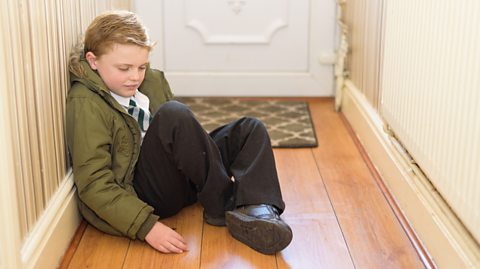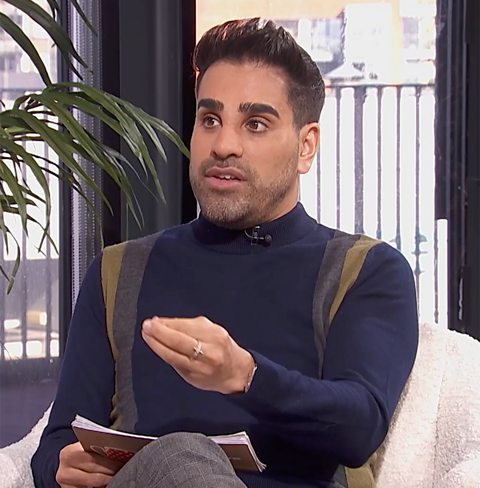
By Dr Ranj Singh
Iтm an NHS clinician and Iтve spent the last 10 years increasing awareness of mental health issues amongst children and young people through the media.
One of the very first pieces I did on TV was on self-harm, which is one of the most common difficulties we encounter. Sadly self-harm rates т especially among girls т have seen a particular increase since the pandemic.
Additionally weтve seen mental health conditions - such as anxiety, depression and eating disorders - all rise significantly.
In part the increase in people accessing our help is down to better recognition and reporting, thanks to greater awareness of mental health issues. The other reasons for this growth are complex, from the adverse effects of social media to the negative impact of lockdown. One thing is common throughout: talking about it is still not easy, and getting help can be difficult.

This short film features a conversation I had with Sam Quek and Gethin Jones on ТщЖЙдМХФ One's Morning Live - discussing how to spot issues, how to talk about them and where you can go for helpтІ
Dr Ranj talks about children's mental health, stigma and Parents' Toolkit on ТщЖЙдМХФ One's Morning Live
Iтm not surprised that people are still finding it difficult to talk about mental health, because itтs what I hear from parents and carers, day-in-day-out.
A conducted by ТщЖЙдМХФ Bitesize, in association with , showed that around 50% thought that there was a negative stigma around their children having a mental health problem. And despite it being so uncomfortably common, people are still reluctant to be open about it, even within their own families.
This is something Iтm more than familiar with and sadly hasnтt changed since I was a child.
When I was in my early teens, my mum went through a mental health crisis, triggered by moving house. After a bout of serious depression, she had to spend a period of time in hospital , before finally coming through the other side. We had never talked about mental health problems before this as a family. And my dad still doesnтt really mention it.
After a period of counselling in my thirties, I realised that I was still carrying the scars from that time. Iтd actually blocked a lot of those memories out and тcarried onт as normal. But when I looked back, I discovered that it had affected my own mental wellbeing, and my outlook on relationships, ever since.
I wish we had talked about it more because it would have helped me to understand it, and not blame myself for feeling so helpless at the time. Fortunately, Iтve grown to learn that being open about these things is the best way to deal with them, no matter how tough it may be.
And thatтs exactly what I advise parents and carers now. You canтt help being affected by mental health issues т they donтt discriminate. But you can talk about them, share your thoughts and feelings with your loved ones, and take away any power they might have.
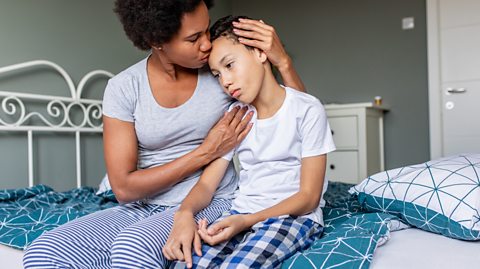
My advice for parents
And there are things that we can all do to open up those conversations and remove that stigma so many of us feelтІ
- Normalise talking about feelings and emotions with children from a young age. Being open should never be seen as a weakness, but as a strength in your ability to communicate and deal with them.
- Create a safe space where your child can come to you and feel confident that they can share and you will listen without judgement. Phrases like, тI am here for you no matter what,т and, тIf ever youтre going through a tough time, you can tell me and I will do my best to help,т are so powerful.
- Try not to diminish or belittle what your child might be going through. Putting things into perspective can be useful (e.g. explaining why their worries might be out of proportion), but remember that people perceive and experience things differently.
- Have conversations about mental wellbeing with other parents and carers, as well as family members. Some may perceive this as an admission of failure, as if you havenтt done your job as parent/carer properly. What most donтt realise is that these experiences are very common. You are by no means alone! By talking, you can share advice and support each other.
- Donтt feel like you have to be the therapist. Dealing with mental health difficulties requires a particular set of skills (thatтs why we have professionals!). Your job is to create a place where your child or young person can share with you, and then you can be a team in getting them the support they need together.
Unless they want you to, try not to take over but be guided by them on how and when they want to do this. And remember that looking after yourself and your own mental wellbeing is important too if youтre going to be there for someone else.
Finding the right support
The other challenge is getting the right support. Letтs be honest, it can be really difficult to access help for mental health issues in young people, and what is on offer can vary according to where you are.
So what can you do if youтre worried about your child? Here are just some of the support services out there for you to tryтІ
- First and foremost, the NHS is still there for you 24/7 т especially in a crisis т but even then, getting the right care can be tricky. Everyone knows that Child and Adolescent Mental Health Services is struggling to meet demand and waiting lists can be long, so please bear that in mind. In the meantime, you may want to check out , which has a specific mental health help section.
- There are several charity helplines т like , and т which can give information and some advice on a range of issues.
- There is an enormous amount of online support out there. have lots of parent discussion forums and they run sessions with mental health and behaviour experts where they aim to answer any questions you might have within 24 hours. Similarly, have an online community where parents can share their experiences, so nobody feels alone. is a charity that produces resources for schools and supports parents too. And the ТщЖЙдМХФ Parents Toolkit is a free resource for anyone looking for stories, advice, and activities to support your child. You can also access this via the ТщЖЙдМХФ Headroom website which has stuff specifically for parents and carers too.
- Finally, is a specific suicide prevention charity for young people, which has information for parents and professionals, and help for any young person in need.
If there is one piece of over-arching advice I would give anyone, itтs that you may not find the right help straight away but it is out there. Keep trying because you can feel better and you deserve to get the right support, even if it takes time to find it.

The ТщЖЙдМХФ Bitesize Action Line has links to organisations that can offer support for children and their carers.
The Anna Freud Centre has a new tool for children and young people - doesn't provide medical advice or a way to diagnose mental health conditions, but could be a helpful start for talking to your GP, a mental health professional, family or friends about your child's mental health care.

Parents' Toolkit
Fun activities, real-life stories, wellbeing support and loads of helpful advice - we're here for you and your child.

Let's Talk Child Mental Health with Dr Ranj and Netmums
Dr Ranj discusses stigma around child mental health with Netmums Editorial Director Jennifer Howze and Cathy Parsley, a Netmums Parent Supporter with expertise in child mental health
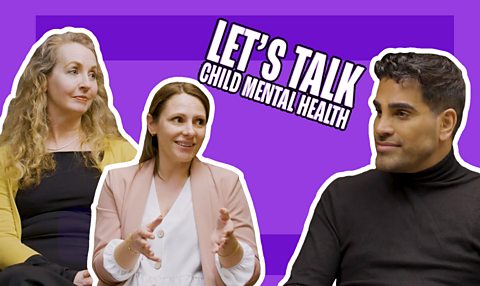
Dr Ranj Reacts to Never Ever Has My Child
We showed Dr Ranj some films from our intergenerational 'Never Ever...' series. He reacts to the films and offers advice to parents around mental health stigma.
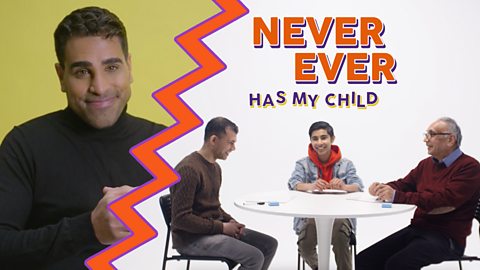
How to tackle anxiety with Dr Anna
Calming techniques to help parents and children manage their anxiety.
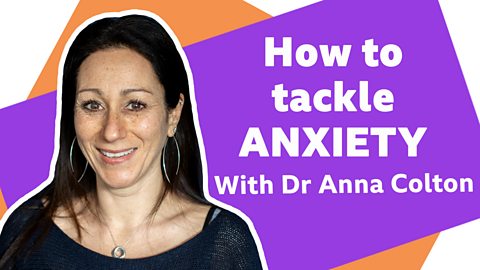
Five tips to support the after-school тmeltdownт
Expert advice on how to cope with after-school restraint collapse as a parent.
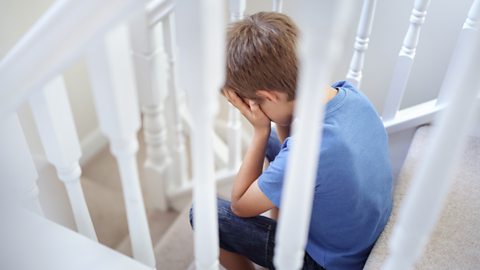
School anxiety and refusal: How to help your child get through tough times
Tips to help parents understand emotionally-based school avoidance and offer support to their child.
